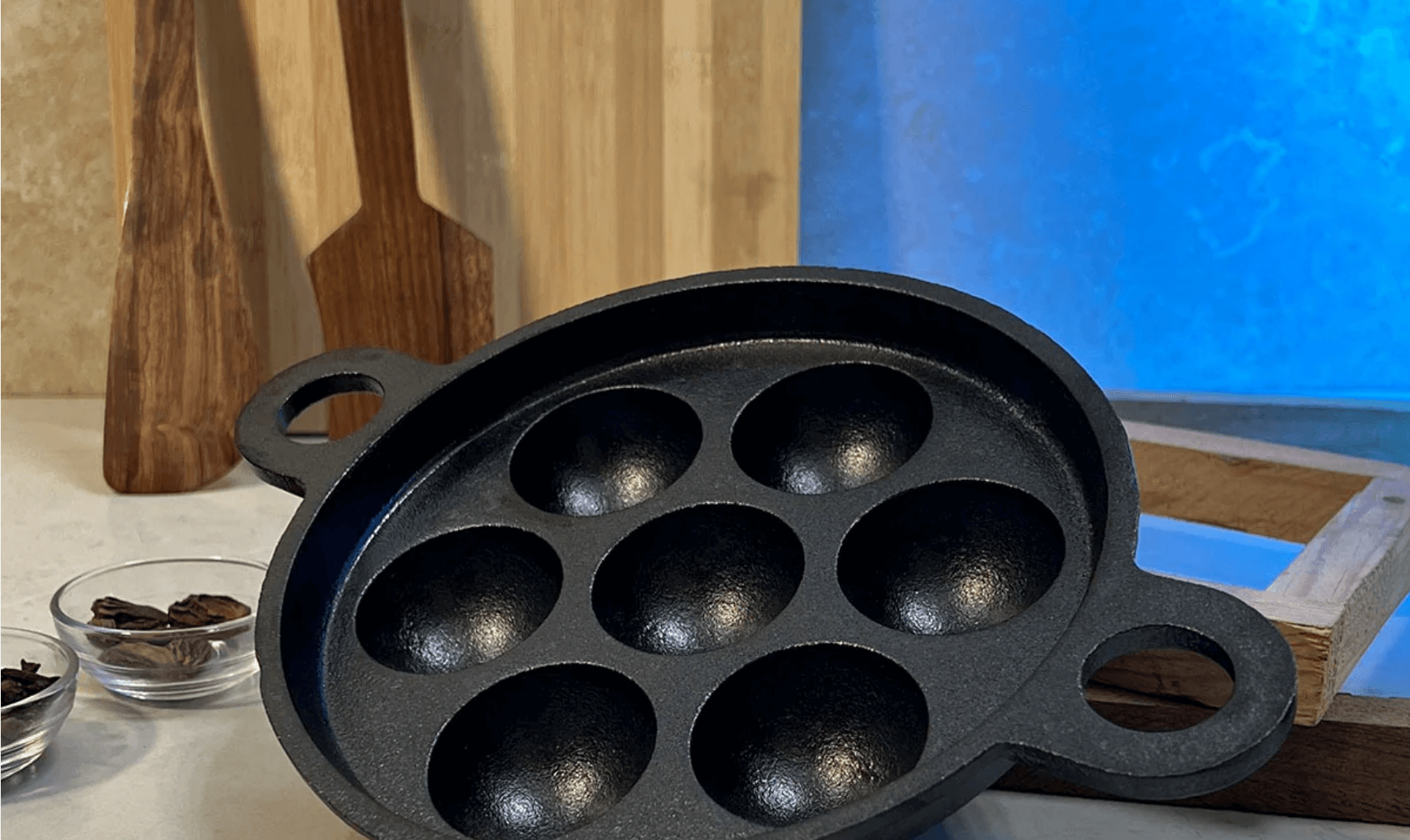
Maintaining Health Cliqs’ Cast Iron combos, can cast iron rust?
The Health Cliq cast iron Dosa ,Tawa & Paddu Maker is a winner kitchen essential much valued for its heat capacity, and modest use and even humbler for the ability to establish a no-stick layer. But even this seemingly invincible cookware isn't immune to a common enemy. Well, yes cast iron can rust, but it does not have to mean your beloved tawa and paddu maker days are numbered; prevention, removal, and care are the cornerstones for warding off the rust menace for generations.
Why does Cast Iron rust?
Cast iron is for the most part made from iron, a metal that reacts with moisture and air forming rust. The given information describes chemical reactions that cast iron rust forms. This is how it happens:
- Improper drying: The iron should not be allowed to remain moist after washing; this is a clear formula for rusting. Water that is trapped on the surface can cause oxidation to begin.
- Lack of seasoning: The seasoned layer on cast iron is also try and save the surface of cast iron. If not seasoned well or if, for any reason the seasoning is destroyed, cast iron is more likely to rust.
- Acidic foods: Ingredients as tomatoes can create a problem by dissolving the cast iron coat causing it to rust easily.
How to clean Rusty cast iron?
Nevertheless, if you find rust marks on Health Cliqs’ cast iron Dosa Tawa & Paddu Maker, you do not have to panic. This is how to solve the problem:
- Identify the rust: The signs include noticing reddish-brown, raised and sore-like lumps or discolouration on the surface of your pan. They are some of the indications of rust.
- Remove the rust: To restore the surface of cast iron that has developed rust there are several procedures that can be followed. There are two common options
- Kosher salt scrub: Rub the rusty areas of the college of coarse kosher salt scattered over it. Rinse the object with water and using a damp cloth or a stiff brush, clean up all the rust. Wash very well and make sure that all part is bone dry.
- Baking soda paste: Mix a paste using baking soda and some water. Rub it into the surface of the car in the rusty regions and allow it to dry for about half an hour to an hour. It is recommended to scrub the surface with a brush without using much pressure like how you wash your dishes then rinse and dry the surface.
- Oven drying: After the rust has been cleaned off your cast iron, make it a point to dry the piece of furniture so it will not rust again. There are two drying methods:
- Stovetop drying: Turn it upside down and place on a burner over low heat for about 5-10 minutes.
- Oven drying: Finally transfer the cookie batter to the preheated oven and switch off the oven light, and allow it to stand for around 10-15 minutes at around 200°F.
Preventing Rust: Cast Irons and Their Secret to Longevity
These are some practices to keep your beloved Health Cliq cast iron Dosa Tawa & Paddu Maker rust-free:
- Seasoning is key: According to Foodie, one should make sure that a good seasoning layer is always on the cast iron. This offers a layer of protection, so that the metal cannot build up rust.
- Dry thoroughly: Never leave your cast iron cookware to dry by air because if you do, the moisture retains on the utensil and gathers bacteria which is unhealthy for use. Do not put a lid on as this results to action of moisture on food.
- Oil lightly after cleaning: Apply a very thin layer of cooking oil on the surface of the backed furnisher after the drying process.
These are general ways you can avoid cast iron rust and you are free to enjoy your cookware at ease during your culinary endeavours. Health Cliq cast iron cookware, dosa tawa, paddu maker, or any other piece requires some basic care strategies applied on a regular basis to keep it in a brand new condition for many years. Trust me with these you will never question “will cast iron rust?”, ever again!
- Choosing a selection results in a full page refresh.
!















